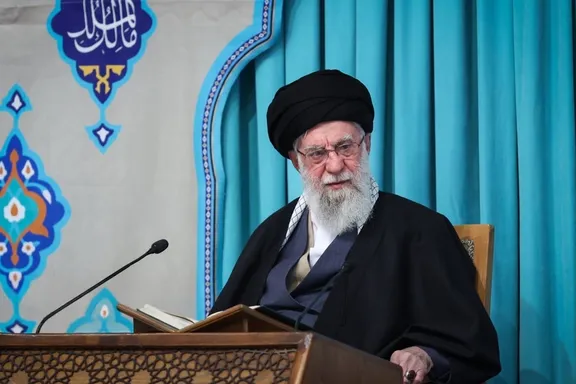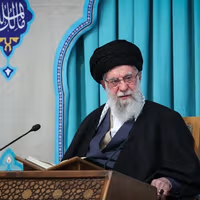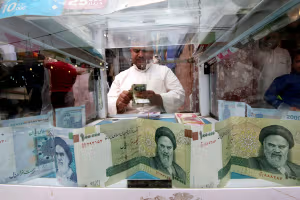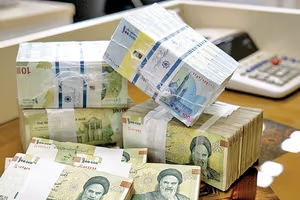Shortly after Hamas fighters stormed into Israel, Iran’s Supreme Leader declared that the region’s map was changing. Only days earlier, the Israeli prime minister had promised that the Jewish state would impose a new order on the region.
Yet two years on, neither vision has come to pass. Instead, the old balance has eroded, replaced by an emerging order that remains fluid and unsettled.
Fear and mistrust dominate—leaving Mideast states unwilling to make peace or all-out war.
Deterrence collapses
Much of the pre-October 7 order has unraveled in the two years since.
The deterrence between Iran and Israel, long a barrier to direct conflict, has collapsed. The 12-day war and a series of reciprocal strikes showed that both sides have abandoned old red lines without being able to impose a decisive outcome.
Iran’s regional network has also diminished. Syria has slipped from its grasp, Hezbollah is on the defensive, the Houthis in Yemen have taken serious blows and Iraq has distanced itself to preserve fragile stability.
For Israel, repeated strikes in Syria and even in Doha signal willingness to cross red lines, but rather than restoring security they have deepened regional anxiety.
The United States remains the main pillar of regional security for allies and partners as they seek to counter Iranian influence. But its authority and moral standing have been weakened as the death toll from attacks by Israel, armed and backed by Washington, have mounted.
President Trump appears more focused on managing the present rather than designing a new order, though his plan to head a transitional Board of Peace in Gaza and invitation to join the Abraham Accords normalization plan with Israel.
Reviving bases in Afghanistan and strengthening regional infrastructure reflect readiness, not intervention.
Washington avoids direct confrontation but seeks to keep control as an “active observer,” preventing collapse while doing little to rebuild order.
Tehran cornered
No country has felt the pressure more than Iran.
The punishing 12-day Israeli-US war showcased both its military reach and its vulnerabilities.
Israeli strikes on military and nuclear sites in Tehran marked the end of its long remove from combat, but frequent missile counterattacks gave its die-hards some fodder to extol Iranian arms.
Failed diplomacy with the West, the snapback of UN sanctions and lack of robust support from China and Russia have further constrained Tehran, whose economy remains tied largely to oil sales and cut off from trade corridors.
At home, growing public discontent has pushed the Islamic Republic into a contradictory path—easing some social restrictions while tightening political control through more executions, top-down discipline and frequent media gag orders.
Still a significant regional player, Tehran is increasingly isolated, with little plausible deterrence power beyond its diminished missile arsenal.
Caution abounds
Elsewhere, regional powers are focused on containment.
Qatar, after Israel’s botched attack strike on Hamas officials on Doha last month, secured fresh guarantees from Washington and treads carefully in its mediation role.
Turkey, while mending ties with the United States, worries about direct confrontation with Israel in Syria and is edging away from Moscow.
The Arab states astride Persian Gulf, meanwhile, are building defensive networks but avoiding escalation.
The Middle East has entered a period of “unfinished order”—born of war, off-balance and dominated by uncertainty.
Military power still matters but no longer suffices.
Governments are seeking stability on shifting ground: Turkey and Qatar lean toward Washington, Saudi Arabia pursues multilayered defenses with a new defense pact with Pakistan, and Israel chases a permanent but elusive peace through strength.
Gearing up
For Tehran, this unfinished order means enduring external pressure while suppressing discontent at home.
Iran’s military weight remains, but its political and economic base is eroded. The vision of the “axis of resistance” as a shield lies in tatters. Deeper isolation than ever appears to be the only discernible legacy of its decades-long support of armed allies.
Amid the tumult, one axiom holds: while others adapt to the region’s unfinished order, Tehran resists—bracing not for peace, but for the next confrontation.












